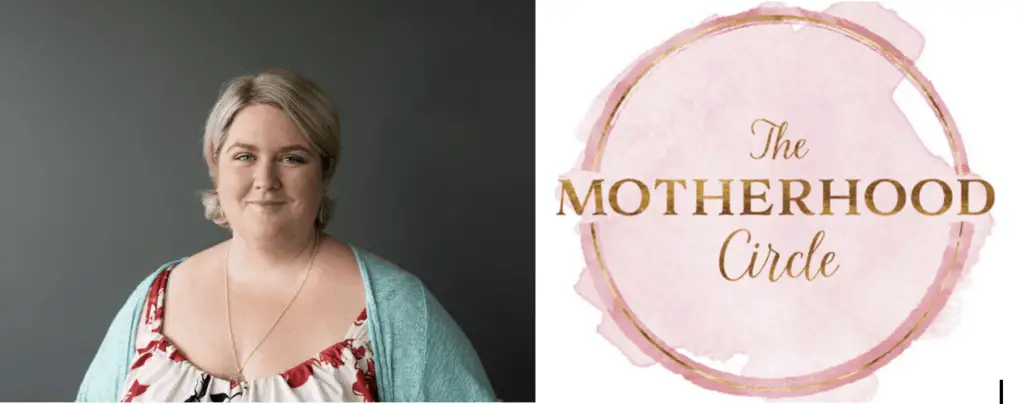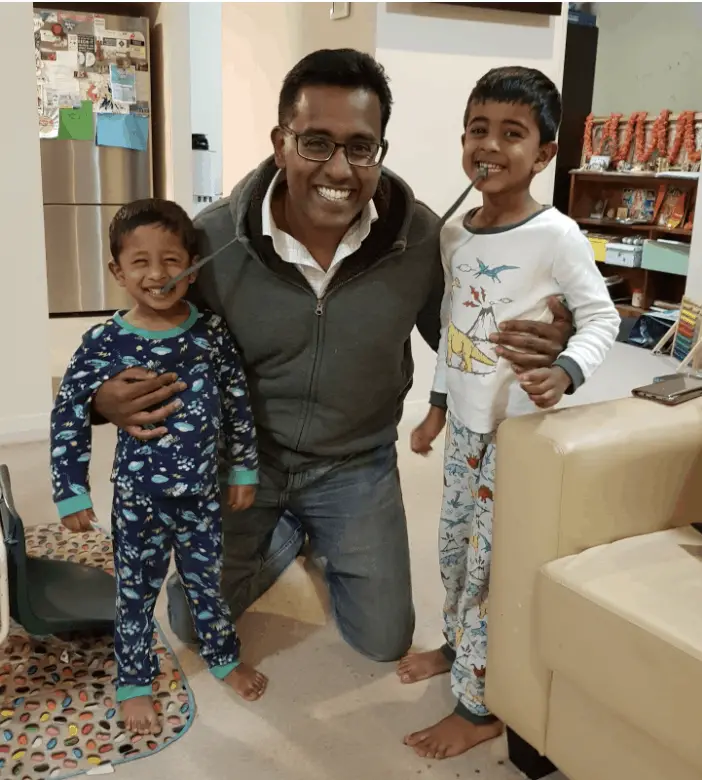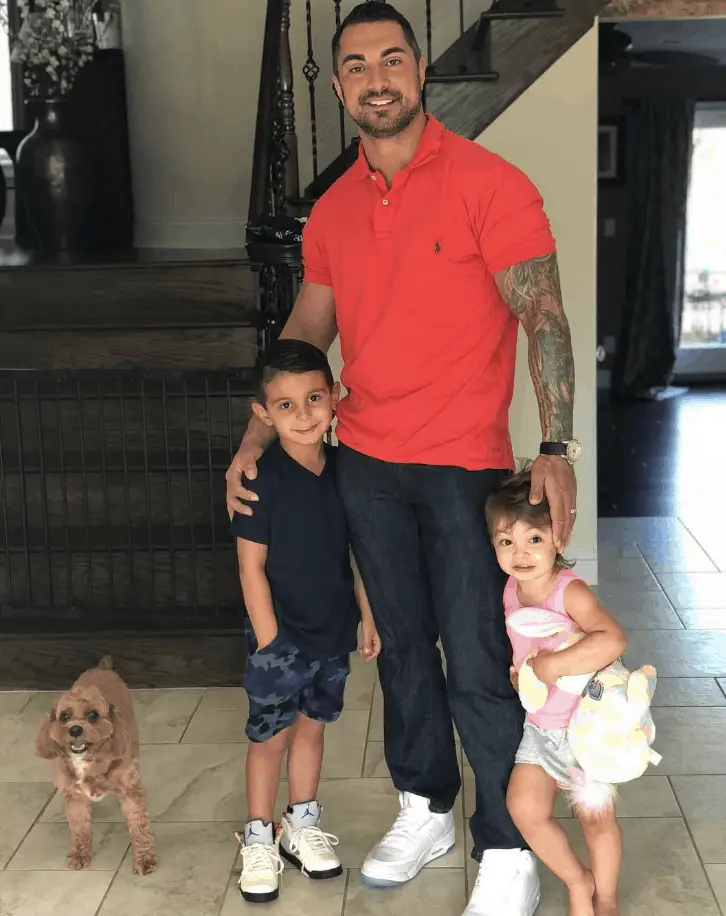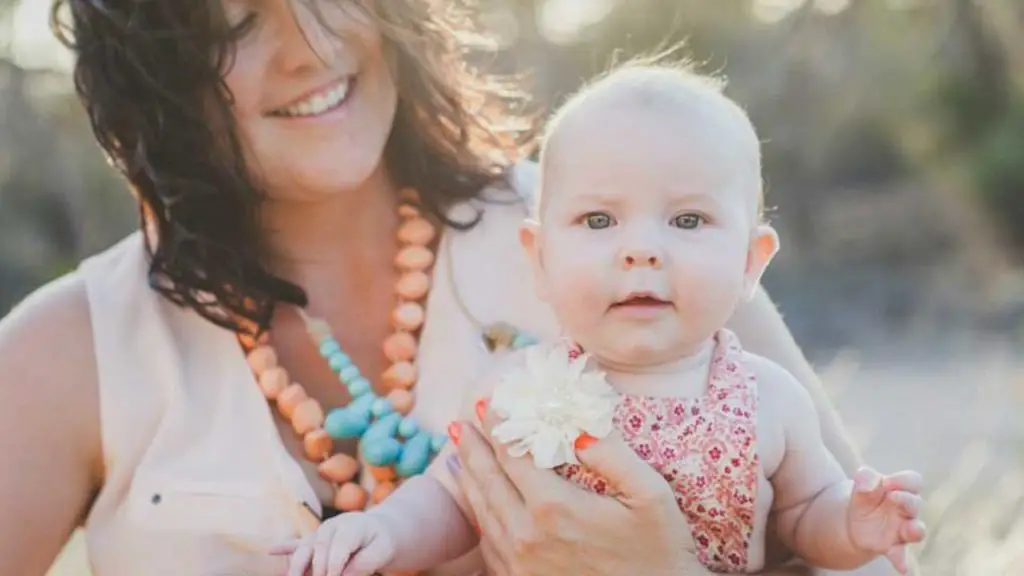 Subscribe to our YouTube Channel
Subscribe to our YouTube Channel
No, run now!
Haha, I’m just joking.
You can be ready but never fully prepared because life and little people are unpredictable. And that is the beauty of being a mom.
You get to learn as you go and work out what works for you, your family and your precious little one.
One of the most fruitful things that you will EVER do is parenting. It is also one of the hardest things that you will do.
Some are more prepared and more excited about becoming a parent than others. Some parents aren’t excited at all; some parents like me feel enthusiastic at times and then find themselves almost soiling their pants wondering if they can do it and do it well.
Some people have been dreaming about and preparing to be a parent for many years, some since they were young.
Take my sister for example. She told us from a very young age that she would be married in her teens and be a parent by the time she was 21.
I had many friends, both men and women, who had names picked out for their children in high school.
I had a gorgeous friend who was so eager to have a baby that she started her baby box in the middle of high school. She would collect unique and practical items for her future children and store them under her bed for when this eventful time came.
And then there are my friends C and B who blew me away with how much preparation they are putting in for becoming parents. As successful business people, you could call them a very understated and friendly power couple. They have included their desire to have a little one in an elaborate five-year plan.
In this plan, they included the type of people they need to be and what they need to do to become that, as well as the kind of people they will allow in their lives.
Some people get dealt with the parent card by surprise, and they feel unprepared (this was my story).
There is no longer one perfect avatar that describes the ‘perfect parent’ (If there is such a thing, I classify myself as a bloody good parent, but you can bet your bottom dollar that sometimes I am not as present as I would like to be and don’t do some things as well as others. And guess what: I make mistakes.).

And parents look different now.
There are no established rules as to who can become a parent. Parents can be married, unmarried, separated, single, same-sex couples, a man and a woman, adoptive, foster carers, teenage, mature, IVF, solo…
So unlike the usual articles and questionnaires on the Internet about the considerations and questions that you must ask yourself to determine if you are ready to be a parent, I am going to take the most important things about a child’s and parents’ health, happiness and development. I’m going to provide you with a no-BS, practical guide to ensuring that you are as prepared as you can be for your situation.
This article will list the changes you will experience along with a set of questions to ask yourself to find out if you are ready to be a parent.
Table of Contents
How do you know when you are ready to be a parent?
Some people have been ready for their entire lives.
For some of us, it happens without us thinking about it. It catches us by surprise, and you are forced to get ready.
Another friend of The Parenting Co told us it was when they asked the question, ‘Am I still scared of doing this?’ and for the first time, the answer was no.
For some, it is just a feeling. For some, it is a natural desire. For some, they don’t ever feel ready, or it takes a year or two. But you give the best you can and learn along the way.
Being PREPARED and being READY are two different things.
Can you be 100% prepared to be a parent?
No! But as with everything in life, it is better to over-prepare than under-prepare.
When I found out that I was going to be a mom, I did what I knew I do best… I started researching. YouTube got a massive workout; I read books and listened to podcasts.
What else was I to do? My knowledge had always got me through before in my professional life. I figured that this would be no different.
I memorized statistics, methods and approaches. I formulated a vision about the type of parent I would be and how I would approach their development and started to gather all the provisions I would need (or had read that I would need).
I was in my world of Doomsday Prepping. I was prepping for baby, armouring myself with all the know-how, devices, apps and procedures I would need to make sure that everything would go smoothly. In my eyes, this whole parenting thing was going to be a breeze because I was ready.
I was going to be chilled and relaxed and slip right into this role, just like I had every step of my career.
I was a teacher; I can handle 20 kids at a time. One little tiny one was no problem.
I was ready! Or so I thought!
I had no inkling of how demanding it would be. I had no idea that I would sometimes be exhausted and have so much love for little people that the thought of something going wrong would bring me to tears. I had no idea that sometimes my plan of attack wouldn’t work, and I would have to make it up on the spot.
Having a baby is serious business.
You may be ready or still warming up to the idea.
Either way, it is best to be as prepared as you possibly can.
There are some things that you need to know and consider before you take the leap. And if you are like me and the whole thing has taken you by surprise, it is okay. It is the best thing that you will ever do, but it is much easier if you get physically, mentally and emotionally ready for this whole parenting gig.
What Happens When You Become A Parent?
Your life changes.
Yes! I remember people telling me that my life didn’t have to change; I just had to make my children fit into my life.
When I was a child, my parents took me to the pub or the sports club and whack me under the pool table to sleep. Not a problem.
TRUTH: You can’t do that anymore.
Your life changes. Yes, you can change it to suit your lifestyle, but IT CHANGES. It can’t not. You have become a parent, not upgraded to a more elegant vehicle.
Maintaining such a high level of functionality takes energy. You will need to conserve it when you can, and that means making changes to how you do things sometimes.
And it doesn’t mean completely locking yourself inside and being devoted only to your mom duties. You still have a right to live and be you; it merely becomes a little more challenging to do that.
Your priorities change.
Kids are sneaky. They have a way of restructuring your priorities for you even when you don’t want to.
You now have an amazing little human whom you need to consider often above all else.
Sometimes you have to say no to things you want to do because they are sick, or someone invited you to a kid-free event, and you can’t get a babysitter at the last minute.
Your mind turns to what they need when you head to your accountant or go to make that luxury purchase. You start considering their future needs above your own. And you have to; you are a parent after all.
You Change
I hate to say it, but you change.
I don’t necessarily mean that this is a bad thing. You go from not being a mom to being a mom.
And with this, you are allowed to change. You need to start considering yourself more also; your health and wellbeing are of the utmost importance so that you can care for your little one.
You need to learn to be patient. A little person doesn’t have a copy of your schedule. Even if they did, they would probably projectile-vomit on it in disgust. They do things in their own time and when they need to.
You may find that you let go of people that you have allowed to mistreat you. You may start saying no to commitments and activities that pre-child you would always attend.
Your invincibility changes. I once hired a 4WD with a girlfriend and travelled around African countries in conflict. I would take more significant precautions if I were to do that now and avoid some things. At the time, I didn’t think twice about it. Your sense of responsibility changes because it isn’t just about you anymore.
I have seen some of the sternest women I know instantly and inwardly soften at the touch of their child.
Your protective instincts get thrown to the fore.
Your conversations will change. You talk about being pregnant or your kids—A LOT! And why not? They are an essential part of your life.
You will start singing kids shows and even have your favourite ‘Bob the Builder’ episode.
And you learn to rock. You will find yourself bursting into a song in the supermarket line as you hold a watermelon or sliding the trolley to a beat as you are talking to friends in the dairy aisle.
Your relationship will change.
Yes again. Point of fact is that you have another person in the relationship that you need to consider. You need to be able to manage your romantic relationships more. Devote time to be that couple. Finding time for both you and connecting are so important.
If your baby goes down for an hour in the afternoon, make time for you both. Screw the dishes.
Be mindful not to let all dialogue be taken up entirely about your new life as parents or your children. You need to be able to be together, to dream, to plan, to love in a way that was similar to before, it just might have to sometimes fit around your bubba.
Your friends will change.
We all hope that this doesn’t happen (although for some it can be a blessing), but in reality, it does.
You sometimes can’t keep up and say yes to everything that your childless friends can. Sometimes, you are tired and can’t be bothered, or your child has vomited all through your bed or pooed in the bath, and you can’t make it on time.
You will find other mom friends that you didn’t have before. People in your town in which you had nothing in common will now become close friends, or you will be forced to catch up with them because your kids are mates.
You will go to Mom Groups, and if you have saved having children until later in life (or started up again), you will feel like the Grandma in the group amongst all the young dollies.
Your spending habits will change.
Yes again! Our spending habits are just that, so this can be hard for some people to come to terms with and change especially if they are on a tight budget. Having to go without life’s luxuries for a bit can be daunting and can make you feel less satisfied.
I have a been-broke parent, a business parent, a stable job parent, a stay-at-home parent, and in all of these roles, my spending looked different from what it did pre-children.
Once again, it comes down to having to care for and consider another human and their needs beyond your own.
Your kids will take on your qualities.
Your kids will take on different pieces of you, both the good and the bad. Whatever you possess, you will pass on to your kids.
As an example, if you are a person that struggles with body confidence, did your mother struggle as well? Are you a people-pleaser? Is your mother or father the same?
If you have a great business mind, you probably learnt that from one of your parents. In short, whatever you want for your kids, you have to show them the way and do it yourself.
No amount of rags to riches stories or discussing the dreams you had and never went after will help them to be any different.
Be happy with you first!

You will cry—a lot!
The hormonal changes after having a baby are ridiculous.
Expect to cry, over anything. Sometimes it is from exhaustion, love or feeling hopeless. Your maternal instincts sometimes mean that you cry over things that you might find a bit weird.
I find the first-rate way to deal with it is to say, ‘Oh, well, I am a mum’, have a giggle and move on.
Expect to be brought to tears by tragic stories about children, animal adverts, sad life stories, and happy life stories. I can’t even listen to the replay of Dawn Frasier winning gold in the 1954 Olympic 100-metre freestyle without bursting into tears!
Questions to Ask Yourself
Why am I having a child?
Hmmm, what an interesting question to throw at you straight up.
Are you having a child for the right reasons?
Children have needs that they NEED to have taken care of. As a mom, you need to make sure you are ready to nurture a child, so ask yourself;
AM I BRINGING A CHILD INTO THE WORLD BECAUSE I TRULY WANT TO?
That should be the reason that you choose to have a child. It is a big responsibility and will impact the rest of your life.
Here are some reasons that may suggest that you are not quite ready to be a parent:
Am I having a child because I need to feel loved and needed?
Are you having a child because you lack love from those around you, or you feel that you lacked it as a child yourself? Do you believe that a child will bring purpose to your life? Children can bring so much joy to your world, but they don’t come without hard work. It is the job of a parent to provide the emotional substance for a child, not the other way around.
Am I bringing a child into the world to ‘fix’ a relationship?
A ‘bandaid’ baby is what it is. The dependency of children often means that having a baby will put more strain and stress on a relationship. Not the other way around.
Am I bringing a child into the world to solve a problem?
Is there a motive or pressure behind having a baby? Is there a nagging mother or boyfriend who wants you to have a baby? Are you sick of your job and want to take maternity leave? Do you need an extra few hundred dollars a week or a month and you think that parenting payments will cover this?
Am I willing to put someone else’s needs ahead of my own?
Are you willing to give up making decisions only for yourself? Are you ready to give away the party lifestyle and the spontaneity? Are you prepared to consider what your baby truly needs from you and be happy to deliver on that to the best of your ability?
Moms are self-sacrificing. It comes as a part of the job description.
And self-sacrifice happens on many levels, from making practical purchases to giving up the last piece of chocolate cake.
Will I resent having a child?
It is normal to get past life regret, parenting regret and even resent your child at times. Not many people will admit it. If you honestly asked your friends, I bet they have had moments when they too have thought, ‘Life would be more comfortable if I didn’t have children’.
Resentful phases are normal, heck, they are even okay. They will often creep up when you are busy, overworked and overwhelmed. Sometimes they sneak up when you look at the freedom that your childless friends have. Don’t feel guilty about it. Admit it and move on.
Parenting is hard; there are parts of it and times that you won’t enjoy. That is normal.
The resentment I am talking about here is an everlasting regret where you can’t get past it to see the joy in becoming a mother.

What type of parent would I/we like to be?
This question is one to ask yourself and also the person you choose to have a baby with (if you are doing it with someone else).
There are so many different things to consider here.
Parenting Styles: You don’t have to stick to one. You can ebb and flow with the situation. But it is hard when two people have different ideas on how to parent. You may need to come to a compromise.
Level of Involvement: How involved in the parenting process are you (and your partner want to be)? It may be that one parent is merely providing the means necessary to have a child. It may be that one parent will work and the other will stay home or that you want to restructure your life to be more present or get help when you are not available.
Parenting Role: What do you see to be your parenting role? Do you share all duties and decisions with your partner, do you designate different parts of parenting?
Parenting Strengths/Weaknesses: What are your strengths or the strengths of your partner that you can take advantage of in the parenting process. You may be a natural nurturer, or you may need some support in this. You may be an anxious person, but your partner is quite relaxed. How can you use these qualities?
Can I parent with my partner?
If you are planning on having a baby and becoming a parent with another person, this is a fundamental question.
Do you have a stable, loving and mutually guided relationship in which you will both be able to support each other, grow together and nurture the needs of your child?
Having a baby can put a strain on a relationship (not to mention having a teenager).
Is your relationship a happy and healthy relationship? Do you look forward to bringing a child into the world with this person?
It can be a long hard track down the road if you decide to go your separate ways. Although it isn’t something that we would like to think about, I think it is crucial.
If your relationship does break down, how will it look? Will you be able to put the best interests of the child first and remain mutually involved and at the very least civil and nondestructive?
What are the values we want to instil and live by?
I asked other moms, and the most significant values that they wanted to instil or pass on to their children was their right to happiness, intrinsic confidence and desire to chase dreams.
Do you have the foundations within yourself to pass them onto your children?
Do you even want to ask yourself this question right now? You are going to have to think about this stuff at some point. What are your values? What will you not compromise on?
Are you healthy enough within your mind and know yourself well enough to live the way that you want and pass lasting values onto your children?
What am I/are we willing to compromise on?
Firstly, FOOD! What we feed our kids plays a significant role in how they behave. There is an age-old saying comes to mind, ‘What goes up must come down’. That is true. Are you prepared to deal with a pint-sized tornado INSIDE your house or apartment that has the same catastrophic power as a nuclear weapon?
That said, my partner and I try to keep our kids away from sugar and preservatives as much as possible…but we are staying with family for a few days. Today, for example, saw our girls have ice cream, crisps and candy sneakily handed out by grandma when she thought we weren’t watching. So we just let them run around with their cousins for the day, and at dinner, they all had a vegetable stir fry. Compromise.
Are you willing to give up days of our lives for the Wiggles now and then?
Are you willing to put work aside to head to sports days?
Are you willing to get to the cocktail afternoon a bit late because you had a kid’s birthday party to attend?
How much free time do I have?
Kids measure their safety in the time you spend with them doing the things that they like. So do you have time to kick a ball, chase butterflies, or cuddle on the couch?
We live busy lives but being present and giving your children your time is vital for your relationship and also for their development.
Some studies suggest that kids need between six and eight cuddles a day in order to feel truly loved.
Although this doesn’t seem like a hard task when you think about it, all the running around, preparing food, cleaning, changing nappies and so on won’t leave you much time.
Am I/are we able to realistically financially support and cope with a child/children?
We all know that kids cost money.
When you consider the basics alone, it starts to add up. Clothes, education, medical needs, nappies—and that is just the beginning.
The Department of Agriculture estimates that a middle-income couple with two children will spend about $234,000 by the time the child is 17!
Do you have a good grasp on financial literacy and education?
When I had my first baby, both her father and I were receiving a good income. But money never seemed to be enough. It wasn’t that we lacked it; it was just that we didn’t have a good enough grasp on money and how to make it work for us to be ever comfortable with it.
I remember saying to him even poor people have kids and they are great parents. We will be fine; we aren’t exactly ‘poor’.
But my relationship with money was to fear it, so even if we did have money, I was scared of it leaving us. It put stress on us as parents and a couple.
And then there came the time of my separation when I didn’t have a job or access to any money, and I grew to be more relaxed about it and, I believe, a better parent.
I was able to dote on my kids more because I was more focused on my kids’ emotional needs rather than my marital bank account. I became happier with who I was and restructured what the vital things in life were to me.
I learnt that it doesn’t matter how much or how little money you have.
If you don’t fix your mindset and change your understanding of money, then you will have the same problems.
Money and the financial pressure from having a child can also put a strain on your relationship.
Having money can alleviate the pressure as little kids can be expensive. You need to have the ability to do the following:
- Identify your needs and wants and be happy to go without some of your wants if you have to (indulge yourself; make experiences rather than buy things).
- Have or create a money mindset where hearing the word and dealing with it doesn’t make you want to run away and hide in a corner.
- Stick to a budget if you need to.
Parenting is not a joyful experience when money issues are at the forefront of everything that you do.
What about me? What do I need to work on/improve?
What do you need to improve in yourself to be the best version of yourself and in turn be the mother that you want to be?
What qualities of yours do you like that you can encourage in your kids? What traits do you have that you don’t want to pass onto your children that you need to change?
If you continue to work on yourself, your kids will follow your lead and self-development will be a natural part of their lives.
Sometimes we have past trauma and personal concerns that we would like to put to rest so we can genuinely settle into being a mom.
Can I cater to their emotional needs?
Now, this is a biggy.
Kids have emotional needs, and as we stated earlier, it is the responsibility of a parent to fulfil these needs in our children, not the other way around.
It is not fair for a parent to weigh down their children with their emotional baggage or rely on their children to fill a void.
You will impact and mould your child. Are you sound and stable enough to help your child develop as they need to?
Do I trust myself?
The foremost thing I have learnt from being a mom is that my gut is always right.
Your gut feeling is often right. Even if it’s not what ‘the norm’ usually is. It is probably the right thing by your kids. Make sure you listen to that feeling, especially when making decisions out of the box.
You need to have the strength to make decisions that are best for your family, regardless of what other people think.
Sometimes, you have to make some big decisions, and you have no other backing other than what your gut is telling you.
Trust yourself.
Do I have the ability to take care of myself?
Another biggy and most people don’t consider this.
You need to be okay to give your kids what they need across all areas of their life.
It means being able to identify when you need to put some time and energy into you. It means being able to let the little things wash away sometimes to make room for the more significant things in your life and your child’s life.
Being in a constant state of drama is not healthy for anyone involved. The best you can do as a parent is put your hand up and say, ‘I need some help’ or ‘I NEED A NAP!’
Do I have a good support network or person?
And on that note, do you have a good support network or person that you can call on when you need to?
Are you welcoming the right kind of people in your life?
Have you said no to toxicity and had professionals, friends, family or partners that care for you whom you can reach out to without the fear of judgement?
It does take a village to raise a child. It isn’t an easy task, and it doesn’t have to be done alone from within the four walls in which you live.
Am I prepared for a child with a disability or condition?
Raising a child under any circumstances can be challenging and also rewarding, but parents of children with disabilities may experience even bigger stumbling blocks.
One of my beautiful momma friends pointed out that she never considered the possibility of having a child with a disability.
When it happened, she and her husband had to learn and grow a lot themselves.
It was a shock. The couple still loved their child as much as their other children. They were happy to have them in their lives, but having a child with a disability came with a range of different emotions and extra considerations.
Children with disabilities may have different or extra needs. Are you okay with this?
Am I prepared to one day let them go?
Our children are not ours forever. They will grow into independent persons.
Our job is to provide our kids with the best framework to become the best and most powerful version of themselves. And honestly, if you want that for them, you have to show them how by doing it for you first.
One day your children will grow up and have a life that is separate from yours. Are you prepared to let them go and provide the best foundation for this?
Momma,
I know you have heard this a thousand times.
Being a mother doesn’t come with a rule book.
It would be much easier if it did, but it just isn’t the way that this whole parenting thing works. And that is the beauty of it.
Your amazing little human is one of a kind. They are a ball of joy, challenge, and frustration, with their distinctive personality.
There isn’t one way or one box for every child.
You will do your best with what you have.
Provide your child with love and let them evolve the way that they deserve to.
There will be snotty noses, scuffed knees and broken bones.
There will be endless nights of sleep, times when you feel at a loss as to what to do and times when you will question your choices and abilities.
These moments don’t last forever.
You may feel fear beyond anything you have ever felt. You may wonder if you are up to the job.
You are.
There will also be days, weeks and years of memories filled with love and laughter.
You will look down into your babies’ eyes for the first time, and when they grow older and you will love them.
You will wish that you did some things differently, and that is okay too. You are only a human, and you did the best with what you had at the time.
There is nothing better than reaching down to find a little hand fitting perfectly in your own and knowing that you helped to create that fantastic and beautiful human.
Are You Ready To Be A Parent—Expert Round-Up
From the moment that you find out that you are pregnant, you become a parent.
The whole journey can be a roller coaster ride of emotions, questions, and concerns. To help prepare every parent for this fantastic moment, I asked some experts to give their best advice on preparing for parenthood.
Ashley Winning – The Motherhood Circle
Ashley believes that when a baby is born, so is a mother. She is the creator of the Journey into Motherhood, an online membership site supporting new mothers to find their calm, confidence & connection in motherhood.
Many new parents—mothers in particular—experience overwhelming isolation and loneliness in the first few weeks and months of parenthood.
Trying to adapt to the transition of parenthood and surviving through sleep deprivation, new parents often find an increase in bickering and arguments causing more stress on the relationship.
As a mother of two and a postpartum doula, I support new mothers to find their calm, confidence, and connection in this new world of motherhood within home-postpartum support and an online program.
There is so much support offered during pregnancy—hospital appointments to discuss medical issues and afterwards, support to check up on baby and make sure they are growing and putting on weight. Unfortunately, not much support is provided emotionally and physically to new families.
We need a shift in our society on how we view and support parenthood, and how we prepare for life with a newborn baby.
How to prepare for parenthood?
Parents need guidance and support from a knowledgeable and connected person in the community like a postpartum doula, who can connect the parents up to local experts, if and when required.
Continuity of care means that the expecting couple can make a trusting relationship with their postpartum doula and feel safe and comfortable after the baby is born.
Parents also need to start creating a circle of support during pregnancy. Find practical hands-on support and non-judegmental emotional support to help them not just survive but thrive in postpartum.
When I was a new mother, I went in expecting to be fighting people off from visiting and wanting to hold the baby. Unfortunately, I was a bit shocked at the lack of support and visits I received from people once the baby was born.
There was so much excitement around the birth and what we were having, that when the baby was born, all we heard were crickets.
My husband went back to work three days later, and I was left at home alone with no adults to talk to.
I wasn’t confident to leave my home. I also couldn’t drive or push a pram for 6 weeks after an unplanned c-section, and I was very lonely and isolated.
New parents need to set reasonable and realistic expectations for parenthood and plan for a peaceful postpartum by doing the following:
- Organising nourishing food before birth
- Creating a circle of support
- Mindset & emotional support
- Practical support
- Birth & breastfeeding classes & education
We focus so much on “setting ourselves up” before our baby is born. But we often don’t realise the real work comes in planning for the fourth trimester and how to flourish in those first few months.
If a new parent feels confident in their abilities and has a positive mindset around their self, they will thrive much more through parenthood.
Niro Thambipillay – Family Focused Founders
Niro is a fatherhood coach, the founder of Family Focused Fathers, and the father of two wonderful young boys.
3 Pieces of Advice for Expectant Dads
Assume a leadership position.
Now, that does not mean you’re going to know what you’re doing. In fact, you won’t. There will be times when you’re going to be completely clueless, and that is okay. That is normal. Here’s what your leadership position means—you do whatever it takes to help make your family’s life easier and help them become the best they can be.
Here are two questions to ask yourself:
- “What can I do right now to make my wife or partner’s journey easier and more joyful?” Operate from that perspective.
- “What can I do to build my connection from day one with my child?” Do NOT take the approach that the baby is the mother’s responsibility. Continuously look for opportunities to connect and lead. It will set you up for the future.
Have zero expectations. Instead, look at fatherhood as a brand new adventure, where you’re learning on the job.
When my wife was pregnant with our first son, she’d often ask me about what I would do when I became a father. My answer was always the same, “I’ll never answer any questions about what I’m going to do as a father until I become a father.” I figure I was in zero position to provide an opinion on a topic I had no experience in.
Of course, there were some important logistics to take care of like baby seats and cots, etc. But apart from that, I went into fatherhood with zero expectations and a completely open mindset—and I would advise every new father to do the same.
You have no idea what a change being a father will be and the changes for your wife and your whole family dynamic. Sure, it can be scary, but my recommendation is to see becoming a father as the greatest adventure of your life—which it is!
Seek support when you need it, especially once you become a father.
Too many men try to be superman and think they can handle fatherhood alone. There are so many mothers’ groups out there. But in today’s world, where more and more men want to become an active part of the child’s life rather than just the primary provider, men need to be supported too.
So join a mastermind, an online men’s group or even a men’s group locally. Find somewhere to share your struggles and get support. No matter how strong you are, many men struggle when they try to do fatherhood alone. This happens especially when they often don’t have a role model to look up to and have no personal experience to rely on to help them become the kind of father they want to be. This situation is often because of their poor relationship with their own father. So accept that fatherhood is a skill you’ll need to learn—and keep learning as your children grow.
Take the pressure off yourself. You don’t need to know it all. You learn more about fatherhood on the job, and it becomes so much easier when you have the support of other like-minded and like-hearted men.

Brian Caswell – MindChamps Early Learning
Brian is a father, grandfather, great-grandfather and Dean of Research & Programme Development of Mindchamps Early Learning
What skills do parents need to develop to prepare for parenthood?
- Empathy. Soon-to-be-parents must be able to get outside of their own heads and get inside the head of a kid. This will help parents determine what’s going to work and what isn’t.
- Holistic mindset. For new parents, try not to focus on the ‘tick box’ skills, but rather, focus on the holistic development of your kid.
- Emotionally aware. – A parent who is emotionally aware of themselves will be able to understand their child and their emotions better.
What is the most important information to consider in order to be a great parent?
- Don’t try to be everything to everyone; you will only exhaust yourself.
- Being a parent isn’t a checklist. I.e., “My child has to do this to be that.”
- Parenting is not one-size-fits-all. Everyone is different, and therefore, the same rules don’t apply to everyone.
- Get to know your child and their identity. They are their own person, and it’s wonderful getting to know them!
- Don’t apply your ego to your child—they are not there to prove how ‘great’ you are.
- Every child will get to where they need to be at their own pace.
How do you know you are ready to be a parent?
The bottom line is: you will never feel like you’re ready.
How do you prepare for parenthood?
The best thing you can do to prepare is to make sure you are capable of taking care of the child in the best possible environment. And that’s not necessarily by splurging with money. The most important thing is whether or not you can provide the time and love for your child, which also means being willing to sacrifice your own needs. Do you have the resources and availability for the kid?
What was your personal experience?
My wife and I had our first child at 18 years old. At the time, my wife was willing to give up her job to take care of our four children full time. It was a sacrifice she was ready to make, and our kids loved the quality time spent. We always made sure that we had plenty of quality moments with our children—they come first! It was important for us to nurture them with love and time and make every experience with them a growing experience. Our kids, who are adults with children themselves, are extremely appreciative of the time we spent with them.

Michael Demetriou – Opear
Michael is the founder and CEO of Opear, a New York-based pediatric house call app.
Begin a mindfulness routine.
We all know it takes patience to parent, but postpartum isn’t the easiest time to develop this virtue. In the months leading up to your baby’s arrival, begin carving out 5–10 minutes a day to practice breathing exercises, meditation, or simply quieting your mind. Your routine is about to change dramatically, and you’ll find it’s much easier to keep up an existing habit than it is to form a new one.
Make a Newborn Journal
A newborn journal is a simple tool to help you set parenting priorities, track developmental milestones, and keep track of your experiences and ideas. Many parents find journaling therapeutic, as it can help you spend less time worrying and more time enjoying parenthood.





